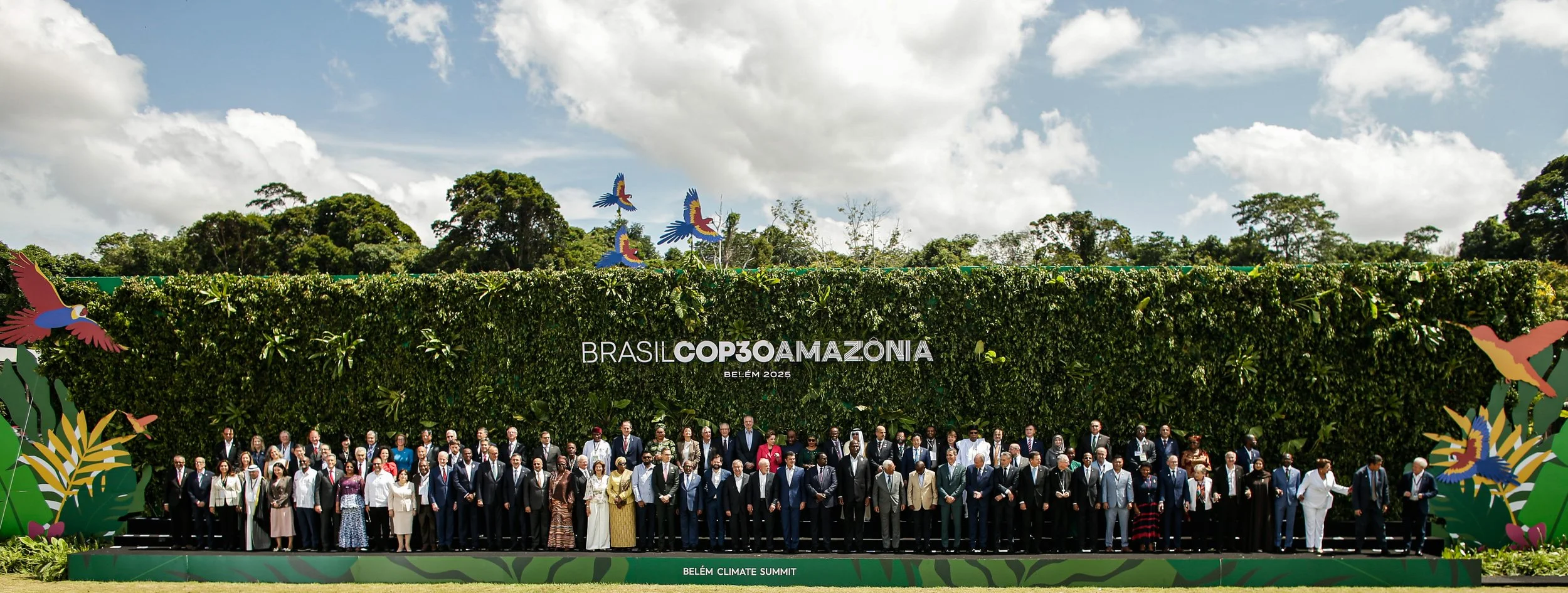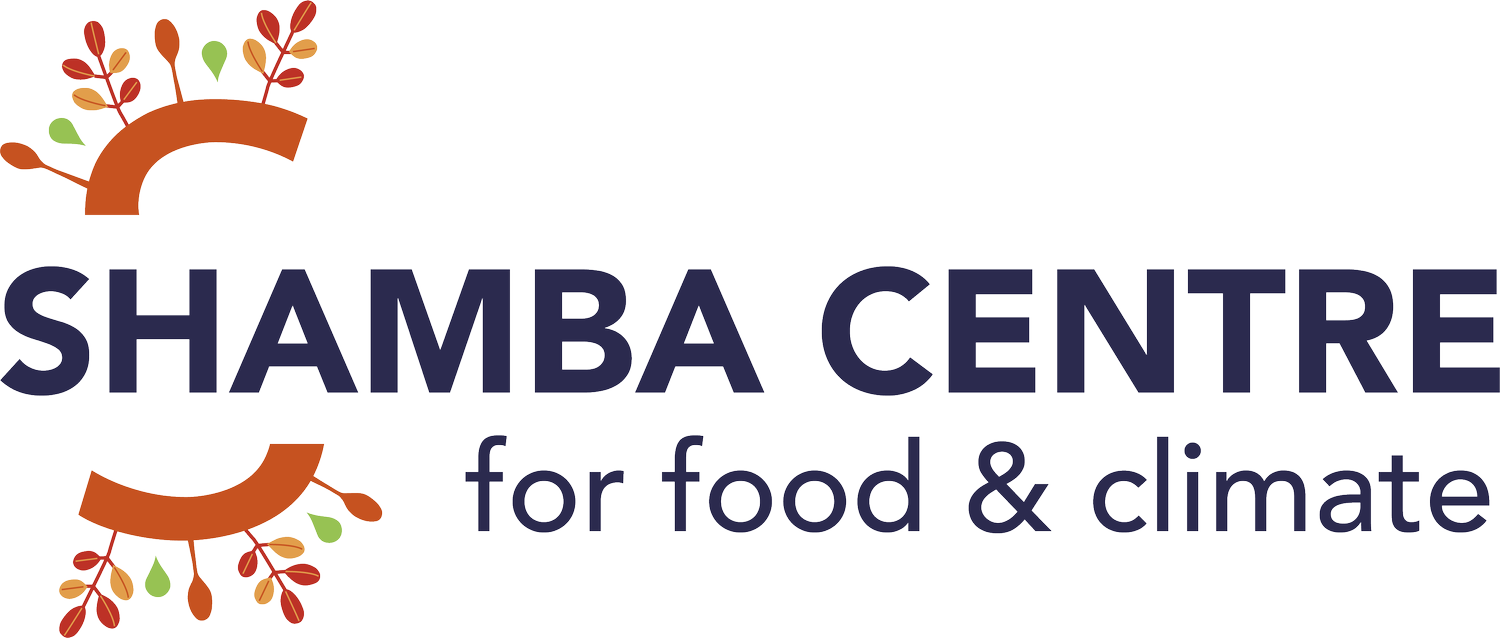
Who calls the shots at CoP 30?
Photo credit: UN Climate Change
17 November 2025 by Oshani Perera, Co-Founder and Director of Programmes
Brazil has called CoP 30 the CoP of the people. By hosting the summit in Belem, the Brazilian presidency draws attention to carbon sinks and the people who protect it. CoP 30 marks the largest indigenous participation in the history of environmental negotiations. In tandem, it is bringing attention to practical, community-based solutions and the upsides of more pluralistic climate governance.
In reality, however, the negotiations will be difficult as the goals of the Paris Agreement have been breached. What should countries do now? Should they design nationally determine contributions and adaptation plans that still aim to limit warming to1.5°C by 2030? Where will the money to make climate investments come from? How should developing countries deal with the reality that donor nations themselves face sovereign debt challenges and backlash from populist voters? Will the IMF, World Bank, MDBs and DFIs reward front runners in mitigation and adaptation with more concessional finance?
Responses to these questions are, in turn, based on another one – who is calling the shots at CoP 30? Celebrities, community leaders, UN officials and activists add colour to the party but have no sway over the negotiation. So, who does?
Brazil, the CoP30 host is committing to reduce carbon emissions by 59%-67% by 2035 compared to 2005 levels through a reduction in deforestation. With deforestation and agriculture accounting for 50% and 36% of indirect emissions, respectively (Veiga et al, 2024), Brazil is showcasing the Tropical Forest Forever Facility which aims to keep forests alive, well and diverse. With a target of US$125 billion, the fund will be managed outside the UN and is the first international financing vehicle launched by a middle-income country. On the downside, Brazil is not focusing on decarbonising electricity and moving away from fossil fuels– a key goal of the Paris Agreement.
The European Union (EU) approved its nationally determined contribution on the night of 4 November – just as negotiators were on route to Belem. Populist politics were at play with threats from the US administration and populist backlash in EU member states, with Hungary and the Czech Republic openly hostile to pro-climate ambition. Does this mean that the appetite for climate leadership from the EU is waning? In June 2025, the EU Commissioner for Climate, Wopke Hoekstra, stated that the EU will not lead alone on climate and that other countries must step in (The Guardian, July 2025).
Will China co-lead climate action along with the EU? The Chinese government has certainly been forthcoming diplomatically with improved relationships with Brazil, the EU and the UN. But China does not see eye to eye with the EU and other donors on climate finance and has consistently refused to contribute (China and India maintain that developed countries must supply these funds without the contribution of large middle-income countries who are now major emitters). China’s NDC proposes to cut emissions by 7% to 10% (from peak emissions in 2030) by 2035. Experts, however, say that a 30% reduction is necessary to maintain warming below 2°C. But China tends to under-promise and over-deliver: over half its vehicles are already electric, and, in August 2025, solar and wind overlook its coal-fired electricity capacity. By 2026, solar power is forecast to overtake coal as China’s primary energy source, with a capacity of more than 1.38TW (150GW) more than coal (Rystand Energy, 2024).
India, the third largest carbon emitter, may follow its performance at CoP 29 and prevent progress. It is unwavering in its refusal to contribute to climate finance. It also maintains that developing countries have the right to continue to use fossil fuels for their economic development. They consistently appear to miss the argument that the price tag on climate-induced losses is higher than climate financing. Alas!
Looking towards the USA, anything can be expected. In October 2025, the US administration intimidated delegates deciding on a carbon levy on shipping at the International Maritime Organization. As reported in the press, several delegates received phone calls and emails telling them that if they voted in favour of the levy, the US would increase trade tariffs and revoke the US visas of their families.
The Alliance of Small Island States is empowered with the Vanuatu-led challenge that saw the International Court of Justice rule that countries must protect the climate from harm and that greenhouse gas emissions are the cause of that harm.
Least developed countries are present in smaller delegations as the costs of getting to Belem have been prohibitive. They will focus on the Baku to Belem Roadmap that, among other measures, calls for taxes on fossil fuels, financial transactions linked to fossil fuels, high polluting and carbon-intensive activities and the super-rich.
The fossil fuel lobbyists will, however, also be present with much larger delegations. About 5,350 lobbyist representing oil, gas and coal interests were present at previous CoPs (Kick Big Polluters Out, 2025). These do not include fossil fuel representatives in official country delegations. On 10 November, the UN rapporteurs repeated calls from activities to curb the participation from these individuals at the CoP negotiations, gatherings and side events.
The large oil producing countries will, as always, remain in the shadows and quietly get in the way of progress. At home, however, they are investing in the next wave of clean energy tech, including renewables, hydrogen and nuclear. Their goal is to not to lead negotiations but continue to be the global engine for energy. And, until the time is right, they want to keep us all dependant of fossil fuels.
So, is nobody calling the shots at CoP 30 this year?
What is certain is that the party will continue with hangers-on having side events, vegetarian dinners and excursions into the Amazon. Perhaps it is the party that has to stop. With quiet clarity, would a few hundred negotiators, scientists and policy makers attain the wisdom that masses cannot? Can the UN and the UNFCC call the shots on the legitimacy of the climate CoPs? Surely that would be better than opening statements that remind countries of their moral obligations and that time is running out?
References
Harvey, F. (2 July 2025). EU no longer willing to act alone on climate, 2040 emissions target signals. The Guardian. Posted at https://www.theguardian.com/world/2025/jul/02/eu-2040-target-proposal-analysis-france
Veiga, J.P.S., Popin, G.V., Cerri, C.E.P., Romanelli, T.L. (2024). Carbon Footprint of Brazilian Agriculture Based on Field Operations. Agronomy. 14(7):1343. https://doi.org/10.3390/agronomy14071343.
Havro, L. N., Selvaraju K. (September 2024). China’s pace puts pressure on global clean energy transition. Rystad Energy. Posted at https://www.rystadenergy.com/news/china-pressure-global-clean-energy-transition
Kick Big Polluters Out. (November 2025). Attendance of more than 5,350 fossil fuel lobbyists illustrates scale of industry stranglehold as COP30 approaches with absent protections. Kick Big Polluters Out. Posted at https://kickbigpollutersout.org/Release-COP30-Fossil-Fuels-Briefing .
